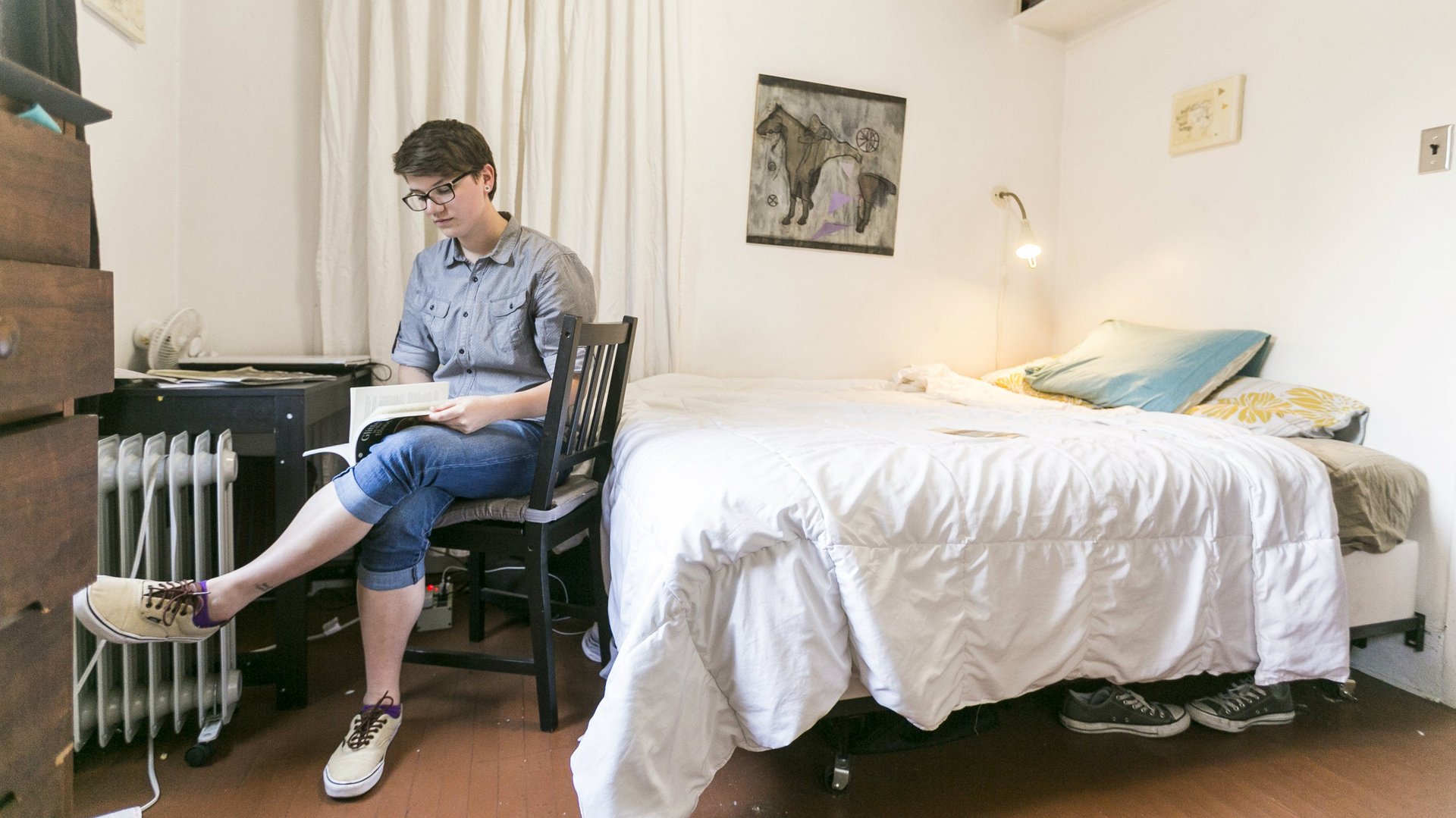How to perfect the art of haggling on Airbnb
Asking is the quickest way to get a discount but it’s also the quickest possible way to piss off an Airbnb host. This is what differentiates the pros from the newbies.



Asking is the quickest way to get a discount but it’s also the quickest possible way to piss off an Airbnb host. This is what differentiates the pros from the newbies.
My general policy as a host—which I’ve been doing since 2011—is to turn away hagglers because it signals a problem guest. It’s still possible, though, to get a confirmed booking and save some money without irritating a host so much they end up declining a guest’s inquiry outright. The trick is learning how to do it delicately.
For every 20 amazing guests, there’s one amazing problem child that leaves a trail of destruction and manages to lock themselves out of the bathroom (this has seriously happened before). The hardest part for any Airbnb host is to weed out bad guests during the booking stage. Unfortunately, haggling is often a hulking red flag to run.
I kinda subscribe to the Pareto principle for most things. Otherwise known as the 80-20 rule, it’s a principle that states roughly 80% of the effects come from 20% of the causes. For example, 80% of my income comes from 20% of my clients; 80% of my biggest pains come from 20% of my headaches and 80% of the stress come from 20% of Airbnb guests. Yeah, I totally apply this to Airbnb as well.
Let’s be clear though: Haggling is not an outright disqualifier. Paula Pant at Afford Anything says it depends on other personality indicators and what the host is willing to put up with:
It depends on how hard they try to haggle and how many other questions they ask. If someone sends me a simple note that says, “What’s the best deal you can offer?” or “Could you knock 20% off?” and I say no, and they drop the subject, then in my experience they’re fairly good guests. But if they send a note that’s peppered with questions ranging from “Is breakfast included?” to “Do you have a toaster?” to “Can you send me directions from your house to X location?” and also ask for a discount, or if they ask multiple times, that’s a giant red flag.
In general, though, any Airbnb host worth their salt—there are definitely some that strive to go above and beyond the average 24-year-old shit host—is most certainly going to be slightly offended when you want a discount for their time, energy and costs for running an Airbnb property. But it is possible to do it smartly so that everyone wins.
Note: In my opinion, it’s not worth it to negotiate for long-term stays. Most hosts will already have long-term pricing enabled if that’s something they’re interested in.
Ditch the Airbnb platform entirely.
Airbnb acts as a third-party provider and makes most of its money collecting fees from guests. Most of that generally goes straight to the company. Generally, hosts only receive the nightly rate, guest fee and cleaning fee. Even then, Airbnb also takes a very small percentage—albeit much less than as a guest—from the host.
Through pure number crunching, it is possible for a guest to pay less money without paying less to the Airbnb host by skirting Airbnb entirely. There is no financial disincentive (or incentive, either, actually) for a host to go off the Airbnb system. But Airbnb tries to block this from happening because it obviously loses money. The system masks phone numbers, emails, websites and any personal identifying information until a reservation is confirmed.

(For what it’s worth, there seems to be some evidence it only gets blocked on the app and Airbnb website but not in email notifications. However, this was not seem consistent in my experience.)
It’s possible to get around it. One host I knew would work with guests by having them book for one night and then having the guest pay the rest in cash once they arrived. That’s one way to do it.
There are clever ways to provide contact information, though. Then nobody loses out: the guest pays nothing in fees and the host can make out with the same amount of money that would have originally stood out to gain. Scott Grimmer from MileValue reported he sent this message once to a potential host:
You +18 can 08 contact 26 me 22 here 1 or 44 on WhatsApp. (My number is in that sentence.)
So, I did some testing and found in general, Airbnb will block any string of numbers that surpass six places. Thus, it’s possible to send:
You 123 can contact 456789 me here or on WhatsApp. (My number is in that sentence.)
Once contact has been established, then it’s time to have the magic happen and secure the lodging through an alternate source like PayPal or Venmo. With a flexible host, you can make this work to your advantage.
Negotiating (and framing a request) properly.
Most guests seem to be under the impression Airbnb hosts are wanting for guests. This is true for terrible hosts but does not apply to great hosts. Great hosts are popular, have highly ranked listings and have no problem attracting guests. Limited rooms also means they can be more selective with the guests they choose to host.
Which means the odds are actually not in your favor. This is important when approaching a host at a place you want to stay at.
Pant phrases it amazingly well: Most guests who negotiate through Airbnb suck at it because they fail to put themselves in their hosts’ shoes. Using two examples she cited on her blog post, how would you feel if someone messaged you and wrote:
We’re coming to Atlanta for a friend’s bachelorette party, and we’ve spent a lot of money on her wedding. Can you lower your price to $50 a night?
Um, no. No one is subsidizing my high utility bills from guests that leave lights on all over the place. Pant calls these types of requests a “subsidize me” request.
This also underestimates that most Airbnb hosts have thought pretty carefully through their pricing—you definitely get what you pay for—and have to deal with the costs of running a hospitality gig on the side. Next.
Haggling last-minute is ballsy.
In terms of last-minute haggling, it’s a huge risk. You could end up with a heavily discounted place… or end up with no place at all. This is the game of thrones.
Though an Airbnb host might be looking to fill up space, they also have full lives and schedules. They’re not necessarily sitting around. Popular hosts that offer reasonable rates and have good ratings will feel very little pressure to kowtow (they’ll just make it up in another booking). Chances are, they’re already making decent income from Airbnb and once haggling is initiated last-minute, you’ve already signaled to the host you might be a possible problem guest.
(Here’s a hint: If you really need a place, don’t play chicken ball. Just agree to the terms. Don’t be dumb.)
But if you’re intent on trying, let’s go back to the previous request we cited earlier:
We’re coming to Atlanta for a friend’s bachelorette party, and we’ve spent a lot of money on her wedding. Can you lower your price to $50 a night?
Per Pant’s example, now let’s rephrase this in a way that won’t put the host off:
I notice your unit is vacant this upcoming weekend. I assume your chance of securing a last-minute reservation is slim. Let me propose a deal: If nobody else books your unit at full-price by Friday at 4:00 p.m., will you rent it to us at half-price?
This way, we won’t be taking the spot of another customer who would pay full-price. We’d only be filling what’s otherwise a near-certain vacancy. We’ll be out by Sunday at 10 a.m., so you’ll have an extra hour to process the turnover for the next guest. What do you think?
That actually sounds reasonable and might be something that I can entertain.
Drop it if the host says no.
The host has already won the Iron Throne. Begging and pleading and agreeing to the original query is not going to endear you any further to the host, who is well within his or her rights not to let you into their home.
Besides, I like to think of it this way: even if the host agrees to let you stay, your stay might just be that less pleasant because of all the hard haggling and negotiating. Especially if you have to sleep under the same roof together. So it’s just better to pick up the pieces and find another place.
This post originally appeared at Map Happy.